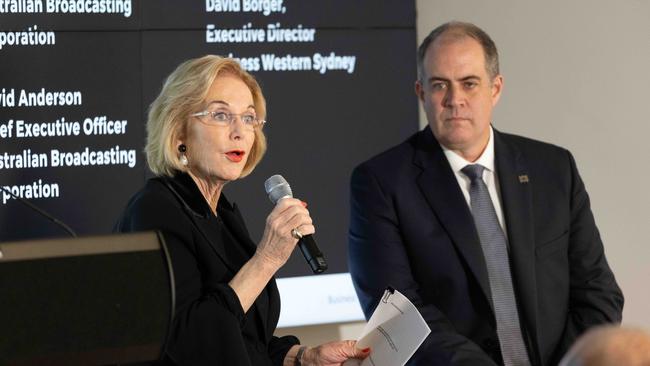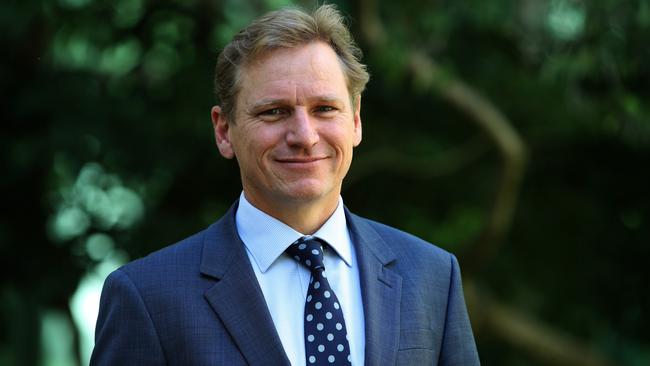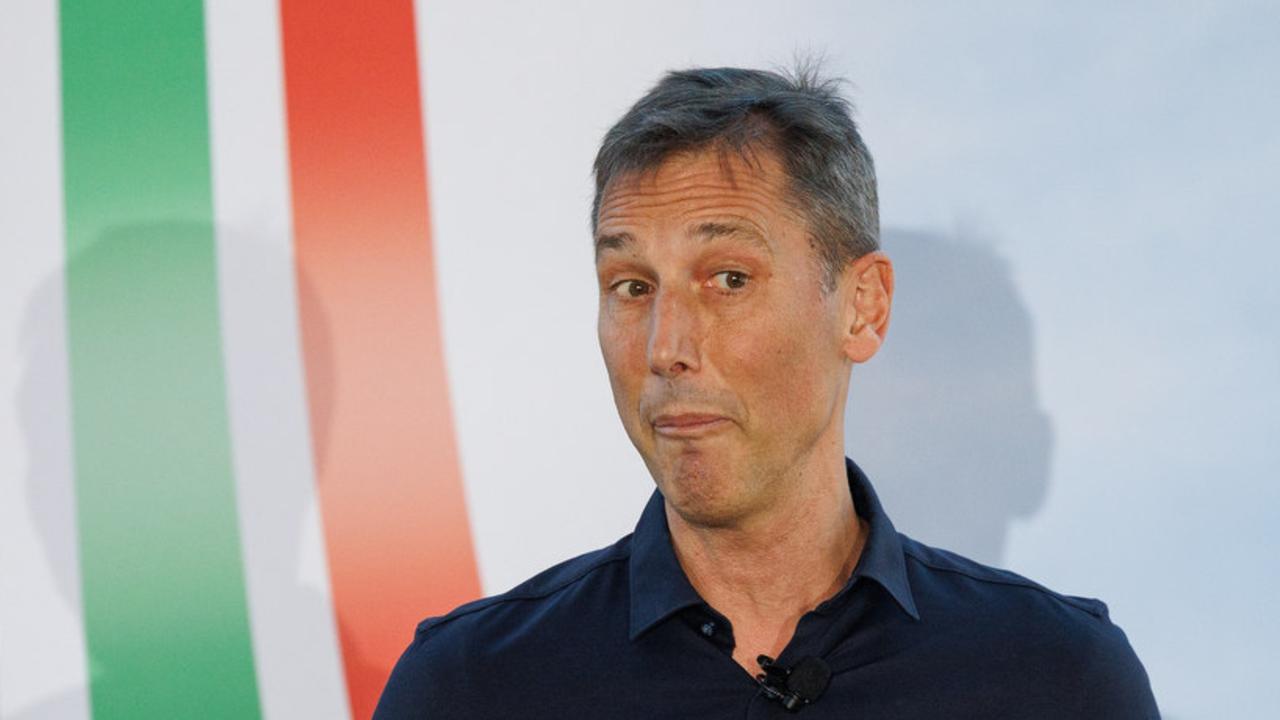Modern ABC has lost its way under the leadership of Ita Buttrose, David Anderson, Justin Stevens


Communications Minister Michelle Rowland reminded her Labor colleagues last week that the “B” in ABC stands for “broadcasting”.
It’s something ABC chair Ita Buttrose, managing director David Anderson and the corporation’s board seem to have forgotten. In the fallout from the axing of the role of ABC political editor Andrew Probyn and 120 redundancies as part of the corporation’s new five-year plan to be digital first by 2028, it’s hard to see how its wider strategy complies with the corporation’s charter.
The charter sits in section 6 of the ABC Act. The ABC board and chair are legally obliged to comply with it. Many ABC critics wrongly claim the charter requires the ABC to be unbiased. In fact section 8 of the Act, which sits outside the charter, specifies it is “the duty of the board … to ensure … news and information is accurate and impartial according to the recognised standards of objective journalism”.
The charter says the ABC’s role is principally, if not wholly, about broadcasting. Indeed its role in digital news was added to the charter only in the past decade by the former Gillard government.
The ABC was created so a public utility could provide broadcast services that private sector businesses could not do profitably. Such things today could include the various ABC regional bureaus that are now being consolidated under newish news director, 38-year-old Justin Stevens.
This column has previously argued the consolidation of the former 7.30 Report into a single national program in 1995 damaged the ABC’s regional political coverage. The ABC tried to compensate with the launch of state-based Stateline programs on Friday nights but these were axed in 2015. Gardening now sits in the Friday 7.30 timeslot.
The latest plan flags the creation of a digital-first version of Stateline, that could be rebroadcast on the ABC news channel. The decision to scrap state-based 7pm news broadcasts on Sundays for a single national bulletin will only contribute to the problem. Sunday, the ABC’s best-rating 7pm news of the week, has traditionally featured state magazine-style items.
The board apparently believes broadcast is dying and it needs to offer content in “new media” first. It appears not to have considered that the ABC’s core audience may be drifting away because of concerns about the politicisation of its content.
The board could do worse than look at publishing. Newspaper companies still produce hard copy newspapers, while news online extends their brands, reach and profitability.

Readers may be surprised to know how valuable the print products remain. Their cover prices have more than trebled in the past seven years and they generate advertising.
Think of all the Harvey Norman ads in the News Corp and Nine metro tabloids. A dozen years ago, publishers spoke privately about shutting print imminently. The national papers, The Australian and the The Financial Review, have never been more widely read and are now very profitable.
The ABC’s “Background to the Plan” document talks about the maturity of the largest global digital businesses such as Facebook, and reflects on likely changes in media that will be driven by these platforms and AI. Yet much ABC content – think comedy, game shows, BBC buy-ins – is already consumed on ABC iview and its free online news site is among the country’s most popular. Multi-screening and the consumption of content on phones and iPads are likely to ensure more ABC broadcast programs are seen away from television.
But this does not mean the ABC should see itself as an alternative to Facebook or TikTok. It’s paid for by taxpayers to be a broadcaster. Its charter requires it to perform functions that involve what is essentially a community service obligation in the provision of information to all Australians across the country and those “living or travelling overseas”.
The plan raises important issues but reaction to it has focused on one man – Probyn. Some in the corporation believe management has used the plan as cover to get rid of its political editor – one of the most consistent news breakers in the entire 1900 now sitting in Stevens’ news bailiwick. The ABC says Probyn’s salary and one other will be used to hire three digital political journalists.
If this is really about finding money, why are Leigh Sales and Fran Kelly still on staff after stepping down from, respectively, 7.30 last year and RN Breakfast in 2021? Sales, reportedly the ABC’s highest-paid journalist, now introduces the weekly Australian Story on Monday nights. Kelly was given a Friday night television talk show, Frankly, that bombed after one series.
Many of the nation’s most senior political journalists, including Laurie Oakes, Nine newspapers’ political editor David Crowe and AFR political editor Phil Coorey, have criticised Probyn’s sacking. As one ABC long timer said to this column, young political journalists in Canberra now feel they have no position to aspire to. The Probyn departure even became the source of mockery by politicians at the annual midwinter ball in Canberra on Wednesday.

This column can report Probyn was a fierce defender of the ABC, and rang to complain directly whenever he felt the Canberra ABC staff had been unfairly criticised.
Gerard Henderson, Sydney Institute director, long-time Media “Watch Dog” blogger and columnist for this newspaper, spoke at length on the ABC’s latest problems in a video you can find on YouTube called “The ABC in Crisis”. Henderson is a longstanding critic of the ABC’s failure to offer the only sort of diversity that should really matter to a news organisation – a diversity of views.
He defends Anderson as the best choice for MD and compares him favourably with the alternatives at the time of his appointment in 2019, and with his predecessors. Fair enough. But Anderson, Stevens and Buttrose have presided over more than the usual number of ABC scandals.
Q+A host Stan Grant stood down last month and criticised management for not defending him from social media vilification. Political correspondent at 7.30, Laura Tingle, and Four Corners reporter Louise Milligan have been counselled about transgressions on Twitter.
Weekend Breakfast host Fauziah Ibrahim was taken off air for a possible breach of the ABC’s social media rules. Her Twitter account included lists of people she called “Labor Trolls/Thugs” and “lobotomised shitheads”.
More damaging was the 2020 High Court judgment exonerating the late Cardinal George Pell, who was subjected to a series of reports by Milligan on Four Corners and 7.30. Milligan’s Four Corners reporting of unprovable allegations against former federal attorney-general Christian Porter, and of a consensual affair by former education minister Alan Tudge, were problematic.
As was the decision of new board member Tingle to host former Liberal staffer Brittany Higgins at the National Press Club in February 2022 in an event screened on the ABC after rape charges had been laid against fellow staffer Bruce Lehrmann the previous November. Lehrmann, who has strongly maintained his innocence, is suing the ABC over the broadcast.
In such an environment, Probyn – a proven story breaker – has been very badly treated.
The five-year plan itself looks like something that will only hasten the ABC’s charge into irrelevance.





